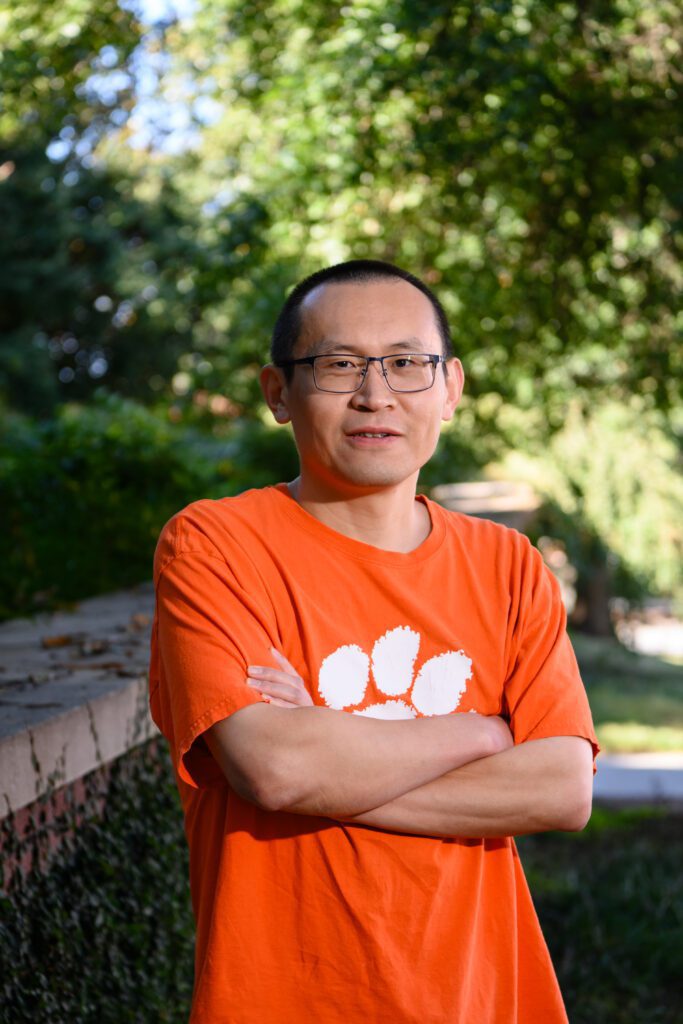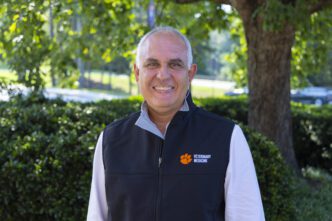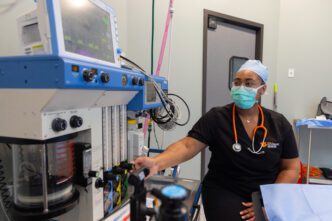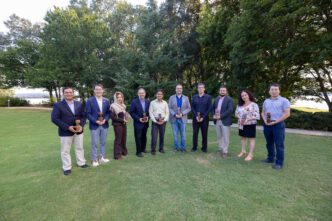The CEO of a company works on a laptop connected to the cloud while a hacker hundreds of miles away uses a technique called a “side-channel attack” to figure out her passwords and what sites she is visiting.
This is the kind of scenario Zhenkai Zhang is trying to prevent with a new project funded by a CAREER Award from the National Science Foundation.
Zhang, an assistant professor in the School of Computing, is working to uncover hidden security risks in shared graphics processing units (GPU) and to design defenses that keep sensitive information safe from hackers.

“GPU cloud systems are not totally secure,” Zhang said. “We need to investigate, find those vulnerabilities and fix them. GPUs are becoming more and more important for artificial intelligence and for society, so making sure they are safe is critical.”
The service at the center of his research is called GPU-as-a-Service. Instead of buying expensive graphics processors, companies, researchers and even gamers can rent them over the internet.
These rented GPUs power everything from AI startups to scientific discoveries to cloud gaming. The pay-as-you-go model makes advanced computing accessible to more people.
But sharing comes with risk. When multiple users run programs on the same GPU, hackers may be able to pick up hidden signals left behind in the hardware.
By analyzing those signals, they can infer what websites someone is visiting, reconstruct keystrokes or even steal the design of a neural network model.
“It’s like leaving fingerprints on a keypad,” Zhang said. “Even if you think your password is safe, a side-channel can reveal what you typed.”
Zhang’s first step is exposing how these attacks work, showing what kinds of information can leak.
He and his team will measure how GPU sharing happens in the real world, developing tools to detect when two users end up on the same chip.
The Zhang team will also create defenses that cloud providers could adopt, such as monitoring unusual memory behavior or using “moving target” techniques to make attacks harder.
Alongside the technical work, Zhang is weaving his discoveries into education, from K-12 outreach to undergraduate courses to graduate research. He hopes the project will inspire more students to explore computer systems and cybersecurity at a deep level.
“What excites me most is getting students involved,” Zhang said. “We need the next generation to be interested in the system-level work that keeps technology secure. It’s hard work, but it’s also fascinating, and it’s the foundation of our future in AI and computing.”
CAREER Awards are seen as a sign of future success in higher education, marking Zhang as a rising star.
Brian Dean, the C. Tycho Howle Director of the School of Computing, said the CAREER Award is a well-deserved recognition of Zhang’s work.
“He is already emerging as a national leader in GPU and hardware security, and his research is positioning Clemson at the forefront of this critical field,” Dean said. “We are fortunate to have him on our faculty and excited to see the impact his work will have on both technology and education.”







